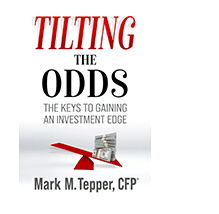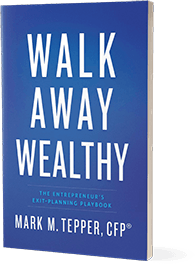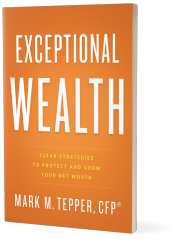What’s going on in the economy right now can be deeply felt at a personal level. How much has your grocery bill increased in the past couple months? Where are you trying to spend less –– is it at the store, booking travel, or subscription services? In Episode #127 of “The Capitalist Investor,” Derek and Luke analyze several companies’ earnings reports and different cost trends they see in their everyday lives. The guys touch on the green energy conversation and how certain ideas may seem attractive, but ultimately fall short economically. This week’s episode invites you to reflect and think about what’s happening largely in the economy and how that’s playing out right in front of you.
Outline of this Episode:
- [3:40] Earnings season tells a story
- [16:25] Greenflation… What is it?
- [23:00] Airbnb vs. Hotels
- [24:30] 2022 summer vacation trends
- [25:50] Is it always worth it to sign up and subscribe?
Target and Walmart’s earning calls show what’s really going on in the economy
Walmart’s stock took a tumble Tuesday after the retailer announced lower than expected quarterly earnings. On the following day, Target’s stock plummeted after the retailer said it missed its gross margin expectations as well. Both retail giants are seeing their margins contract –– this is a clear display of inflation catching up and pinching the economy.
Inflation, supply chain issues, increasing costs of freight and transportation are all eating into their bottom line. It all comes down to their input prices.
To understand what’s going on, people need to be able to distinguish if what these retailers are experiencing is a supply or a demand problem. And the truth is that the demand is still there –– but as consumer prices continue to rise, who’s to say when it will slow.
One of the biggest issues facing Walmart right now as their margins compress is that it’s a discount retailer and grocer; people shop there most of the time to shop down and get goods cheaper. Walmart’s appeal is that they keep their prices low. But as inflation continues to be an issue, the retailer is struggling to raise their prices because they don’t want to price people out of demand. But still, the consumer’s spending power is diminishing.
Right now, earnings are showing that when people can’t buy as much, they’re going to shop down and try not to spend as much money; that’s why expected earnings are missing their mark.
People need to eat so they will continue to buy groceries –– the demand isn’t going to disappear. But what the market is not considering is that people aren’t going to buy as much. Every time the average consumer goes out to shop, they feel their spending power slip away. They have to pivot and make different spending choices and that’s what we’re seeing.
Some companies are tanking, but others are benefiting from these supply issues: Home Depot and United Airlines
Target and Walmart might be feeling the pinch, but companies like Home Depot and United Airlines are profiting in this climate. Demand is still there for construction materials and traveling.
Home Depot recently said that the lumber and housing markets may remain supply chain constricted for the next five years –– that gives their earnings an advantage. They aren’t facing the same conflict as Walmart because they are able to efficiently raise their prices since people continue to need construction textiles. People can’t shop down for those types of goods. Home Depot may see their stocks continue to benefit for the next few years because construction demands will remain high, and prices will too.
Similarly, the demand for traveling has remained high and that’s how United Airlines is profiting. Airline ticket prices are up by at least 25 percent than they were this time last year –– surely surpassing inflation.
People were locked inside and refraining from vacationing over the past two years. Now, many of them want to get out and travel.
What sectors will always have a driving demand?
The economic environment from a stock picking standpoint is one in which you have to identify the areas where consumers will continue to spend money when their spending power is gone.
People will always need to buy groceries and construction materials; they will always want to buy or renovate homes. Those are easy areas to identify. But what about airlines and traveling? As inflation sits so high, when someone is running out of money where are they going to cut their spending?
That’s why the airline industry can be a concerning area. It’s a sector that can easily experience low demand. Nobody knows what the future with Covid-19 will entail, airlines have a historically bleak relationship with the labor market –– it’s an industry with so many expenses that often they barely break even.
Greenflation… Inflation but make it environmentally friendly
Some green energy policies and ideas seem enticing, and many people resonate with them. But when you look at them from an economic standpoint, none of it makes sense.
We’re all for protecting and making the environment better. That’s a mindset everyone should have. But current policies that call to move away from traditional energy methods like fossil fuels would cause irreparable economic damage.
We don’t have all the grids and frameworks right now to completely transition to electric powered energy. We have to transform and build more expensive infrastructure which would cost billions and billions of tax dollars.
New solar and wind infrastructure frameworks would require higher and more demanding maintenance and servicing costs, and those will be financed through American tax dollars. When those high energy costs are forced upon people, it will decrease their spending power –– that’s greenflation. If we learned anything about inflation, it’s that it hurts lower and middle-income people the most.
Some policies come from good intentions and sound appealing, but when you dig deep and break them down economically, you come to understand that some things just won’t work.
Connect With Mark Tepper
- Twitter: @MarkTepperSWP
- Follow Mark on LinkedIn
- Send Mark a message here
- The SWP Connect YouTube Channel
Connect with Derek Gabrielsen
- Twitter: @DerekGabrielsen
- Follow Derek on LinkedIn
- Send Derek a message here
- Check out Derek’s YouTube channel!
Connect With Luke Lloyd
- Twitter: @LloydBoyLuke
- Follow Luke on LinkedIn
- Send Luke a message here
- The SWP Connect YouTube Channel
Send your questions and comments to us at info@SWPConnect.com
Subscribe to The Capitalist Investor
 Enter your information below, and we will email you our new eBook, Tilting the Odds
Enter your information below, and we will email you our new eBook, Tilting the Odds




